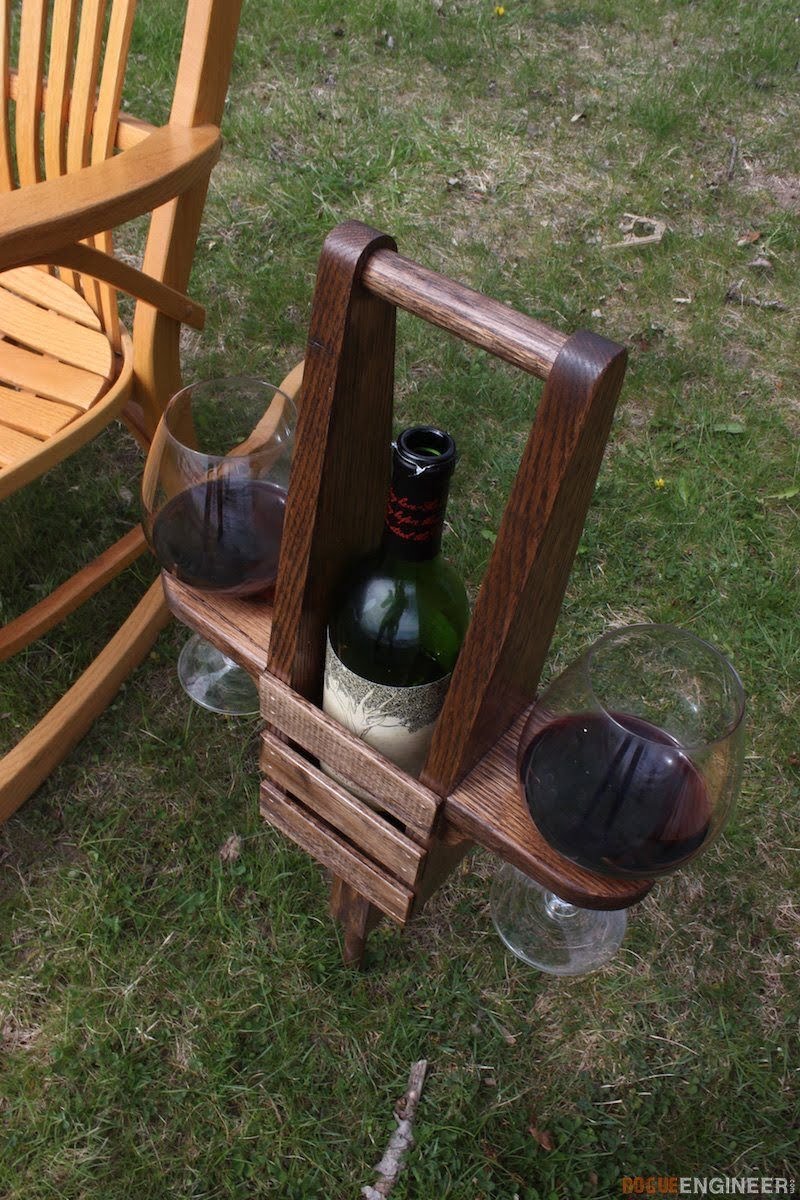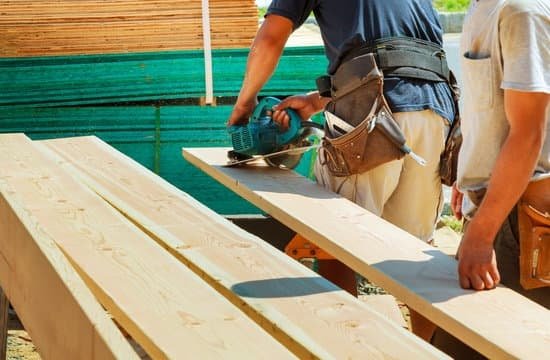The Woodwork Merit Badge is an exciting opportunity for Boy Scouts to hone their woodworking skills and showcase their craftsmanship. In this article, we will explore the importance of woodworking in Scouting and provide an overview of the Woodwork Merit Badge requirements.
We will also offer a step-by-step guide to completing the Woodwork Merit Badge worksheet, along with tips and tricks for mastering woodworking skills. Additionally, we will delve into real-life applications of woodworking skills and provide valuable resources for finding Woodwork Merit Badge worksheets.
Woodworking plays a significant role in the Scouting experience, allowing Scouts to learn essential skills while fostering creativity and ingenuity. The Woodwork Merit Badge offers Scouts the chance to demonstrate their proficiency in working with wood, from simple carpentry to more intricate projects. It equips them with practical abilities that can be applied both in and out of a Scouting context.
To earn the Woodwork Merit Badge, Scouts must fulfill specific requirements and complete a designated worksheet. This comprehensive guide will break down each step of the process, providing Scouts with all the information they need to successfully earn their badge. From understanding safety measures to mastering techniques, this badge serves as a testament to a Scout’s dedication and expertise in woodworking.
The Importance of Woodworking in Scouting
Woodworking is a valuable skill that has been a fundamental part of the Scouting experience for many years. The Woodwork merit badge offers Scouts the opportunity to learn basic woodworking skills and gain an appreciation for craftsmanship, safety, and creativity. This section will delve into the importance of woodworking in scouting and how it contributes to the overall development of young individuals.
Building Practical Skills
One of the key reasons why woodworking is important in Scouting is that it helps Scouts develop practical skills that can be applied in various aspects of their lives. From learning how to properly use tools to understanding different types of wood and their properties, Scouts gain valuable knowledge that can be beneficial for future DIY projects, home repairs, and even potential careers in woodworking.
Promoting Creativity and Imagination
Woodworking also plays a crucial role in promoting creativity and imagination among Scouts. As they work on woodwork merit badge projects, Scouts have the opportunity to design and create functional items such as birdhouses, picture frames, or even small furniture pieces. This encourages them to think outside the box and find innovative solutions to woodworking challenges, thus fostering a sense of creativity and resourcefulness.
Emphasizing Safety and Responsibility
Another reason why woodworking is important in Scouting is because it emphasizes safety and responsibility. By teaching Scouts proper handling of tools, safe work practices, and awareness of potential hazards, the woodwork merit badge instills a sense of responsibility when working with sharp objects and heavy machinery. These lessons not only apply to woodworking but also promote overall safety consciousness among young individuals.
Overview of the Woodwork Merit Badge Requirements
The Woodwork Merit Badge is one of the many badges that Scouts can earn to demonstrate their skills and knowledge in various areas. This particular badge focuses on woodworking, a valuable and practical skill that can be used throughout life. The requirements for earning this badge are designed to teach Scouts about safety, tools, materials, and construction techniques.
To earn the Woodwork Merit Badge, Scouts must complete a set of requirements that cover a range of topics related to woodworking. These requirements include understanding different types of wood, identifying basic hand tools and their uses, demonstrating proper tool care and safety procedures, as well as completing a specific woodworking project. The badge also emphasizes the importance of following plans and using precise measurements when working with wood.
One key requirement for earning the Woodwork Merit Badge is completing a Woodwork Merit Badge worksheet. This document serves as a guide for Scouts to track their progress as they work through the requirements. It includes sections for recording research on different types of wood, sketches of planned projects, safety guidelines, tool maintenance logs, and project details. The completion of this worksheet provides Scouts with a tangible record of their efforts and achievements in woodworking.
| Woodwork Merit Badge Requirements | Description |
|---|---|
| Understanding Different Types of Wood | Scouts must research and identify at least five types of wood commonly used in woodworking. |
| Basic Hand Tools and Their Uses | Scouts need to demonstrate knowledge of the basic hand tools used in woodworking and their respective uses. |
| Safety Procedures | Scouts should show an understanding of the importance of safety when working with woodworking tools and materials. |
Step-by-Step Guide to Completing the Woodwork Merit Badge Worksheet
The Woodwork Merit Badge Worksheet is a valuable tool for Scouts looking to earn their merit badge in woodworking. This worksheet provides a structured approach to learning and mastering woodworking skills, ensuring that Scouts are well-prepared to meet the requirements of the merit badge. By following the step-by-step guide outlined in the worksheet, Scouts can gain hands-on experience with woodworking tools and techniques while also gaining an appreciation for craftsmanship and creativity.
One of the first steps in completing the Woodwork Merit Badge Worksheet is to familiarize oneself with the requirements of the badge. This includes understanding the difference between softwoods and hardwoods, identifying common types of wood, and explaining how to read a lumberyard ticket. The worksheet provides detailed instructions for each requirement, giving Scouts a clear roadmap to follow as they work through each task.
Another key component of completing the Woodwork Merit Badge Worksheet is developing proficiency in using basic woodworking tools such as saws, chisels, planes, and clamps. The worksheet offers guidance on safe tool handling practices and provides opportunities for Scouts to demonstrate their ability to measure, cut, shape, join, and finish wood projects. Through hands-on practice and instruction from qualified leaders or mentors, Scouts can build confidence in their woodworking skills and work towards successfully earning their merit badge.
Scouts who complete the Woodwork Merit Badge Worksheet not only gain practical knowledge and skills in woodworking but also develop important character traits such as patience, perseverance, problem-solving, and attention to detail. These are qualities that can serve them well beyond their scouting years, making the woodwork merit badge a valuable achievement for any aspiring woodworker.
| Woodworking Skills | Value |
|---|---|
| Measuring & Cutting | Develops precision and accuracy |
| Joining & Finishing | Fosters creativity and craftsmanship |
| Safe Tool Handling | Promotes responsibility and awareness |
Tips and Tricks for Mastering Woodworking Skills
Woodworking is a skill that requires patience, precision, and creativity. As you work towards earning your Woodwork Merit Badge, it’s important to develop a solid foundation of woodworking skills. Here are some tips and tricks to help you master the art of woodworking:
1. Safety First: Before you start any woodworking project, it’s crucial to prioritize safety. Always wear safety goggles, use ear protection, and follow all safety guidelines when working with tools. Additionally, make sure to choose the right type of wood for your project and handle sharp tools with caution.
2. Practice Makes Perfect: Like any skill, practice is essential for mastering woodworking. Take the time to practice basic woodworking techniques such as measuring, sawing, sanding, and drilling. Start with simple projects and gradually work your way up to more complex ones.
3. Learn from Others: Don’t be afraid to seek guidance from experienced woodworkers or other scouts who have already earned their Woodwork Merit Badge. You can learn valuable tips and tricks from their experiences and even collaborate on projects together.
As you continue to hone your woodworking skills, remember that earning the Woodwork Merit Badge is not just about completing the requirements-it’s about developing a lifelong love for craftsmanship and creativity.
Now that you have these tips in mind go ahead and start your woodwork merit badge worksheet. Go through each requirement carefully; ask for help if necessary until you feel confident enough in what you’ve accomplished before moving on to the next one. Use these tips in creating a piece using proper materials so show others how much potential this skill has.
Resources for Finding Woodwork Merit Badge Worksheets
Scouting is all about providing young individuals with opportunities to learn and grow, and the Woodwork Merit Badge is one of the many avenues through which Scouts can develop new skills and knowledge. One of the key components to completing this badge is the Woodwork Merit Badge Worksheet, which serves as a guide for Scouts as they work through the requirements.
Finding resources for these worksheets can sometimes be a challenge, but there are several options available to help Scouts on their journey toward earning this badge.
Official Scout Websites
One of the most reliable sources for finding Woodwork Merit Badge Worksheets is through official Scout websites such as the Boy Scouts of America (BSA) website or other scouting organizations. These websites often provide downloadable versions of the worksheet that can easily be accessed by Scouts and their leaders. The worksheets available on these websites are typically approved by scouting organizations and are designed to align with badge requirements.
Scout Leaders and Mentors
Another valuable resource for finding Woodwork Merit Badge Worksheets is through direct communication with Scout leaders and mentors. Many experienced leaders may have copies of previous worksheets that they can share with their Scouts, or they may have suggestions for where to find reputable worksheets online. Additionally, mentors who have experience in woodworking may be able to provide additional guidance and resources beyond just the worksheet itself.
Online Scouting Communities
For those seeking alternative sources, online scouting communities can also be a great way to find Woodwork Merit Badge Worksheets. Platforms such as forums, social media groups, or even scouting-specific websites often have members who are willing to share resources and offer support to fellow scouts. This can be a great way for individuals to connect with others who have already completed the Woodwork Merit Badge and are familiar with where to find helpful materials.
By utilizing these resources, scouts can access valuable tools like the Woodwork Merit Badge Worksheet that will aid them in successfully completing this badge while developing essential woodworking skills along the way.
Real-Life Applications of Woodworking Skills
Woodworking skills are not only valuable for completing the Woodwork Merit Badge but also have real-life applications that can be useful in both personal and professional settings. Learning how to work with wood can open up a world of practical opportunities, from DIY home improvements to pursuing a career in carpentry or furniture making. Here are some examples of real-life applications of woodworking skills:
- Home Repairs: Having woodworking skills can empower individuals to take on various home repair projects, such as fixing broken furniture, building custom shelving, or repairing wooden fixtures around the house.
- Career Opportunities: For those interested in pursuing a career in construction, carpentry, or woodworking, earning the Woodwork Merit Badge is an excellent foundation for developing essential skills and knowledge in the field.
- DIY Projects: Woodworking skills enable individuals to engage in do-it-yourself (DIY) projects, such as building decorative items, crafting custom gifts, or creating functional pieces of furniture for their homes.
Conclusion
Earning the Woodwork Merit Badge is a valuable accomplishment for any scout. Not only does it teach important woodworking skills, but it also fosters creativity, patience, and perseverance. By completing the requirements of the merit badge, scouts have the opportunity to develop a deeper appreciation for the craft of woodworking and gain confidence in their ability to create practical and beautiful objects out of wood.
The Woodwork Merit Badge Worksheet serves as a guide for scouts as they work through the various requirements, from identifying different types of wood to completing a woodworking project. This worksheet not only helps scouts keep track of their progress but also encourages them to reflect on what they have learned throughout the process. It provides a structured way for scouts to demonstrate their knowledge and skills in woodworking, paving the way for them to become proficient woodworkers.
Furthermore, earning the Woodwork Merit Badge can open up doors for future endeavors in woodworking. Whether it is pursuing further education in carpentry or becoming an entrepreneur in woodworking, this merit badge lays a solid foundation for scouts who wish to continue honing their woodworking skills. It is an achievement that showcases dedication, craftsmanship, and a passion for working with wood that will undoubtedly serve them well in whatever path they choose to pursue.
Frequently Asked Questions
What Is the Hardest Merit Badge to Earn?
The hardest merit badge to earn is often considered to be the Scuba Diving merit badge. It requires not only a significant time commitment, but also access to expensive equipment and specialized training.
Is There a Woodworking Merit Badge?
Yes, there is a Woodworking merit badge offered by the Boy Scouts of America. This badge teaches scouts about woodworking tools, safety, and techniques, and it allows them to complete various projects using their skills.
What Is the Easiest Merit Badge?
The easiest merit badge is subjective and can vary depending on an individual’s skills and interests. However, some scouts may find that the Fingerprinting or Textile merit badges are among the easiest to earn due to their straightforward requirements and accessible subject matter.

Hi everyone! I’m a woodworker and blogger, and this is my woodworking blog. In my blog, I share tips and tricks for woodworkers of all skill levels, as well as project ideas that you can try yourself.





